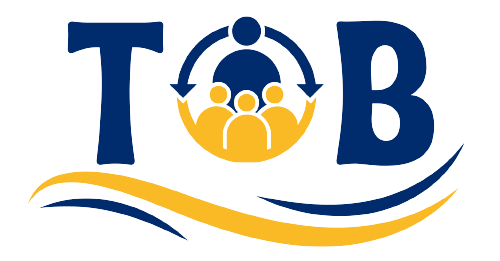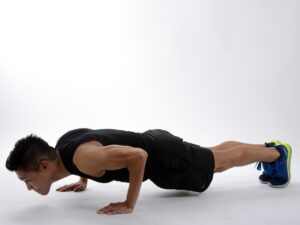Staying a long and active life necessitates more than good fortune. People from all over the globe visit gymnasiums and enjoy exercising for reasons. There are different kinds of it. Here we are to explain the role that heredity plays in skill-related Fitness. Some people believe that keeping their health will only benefit their physical appearance. Being fit will help them regulate their overall well-being by enhancing their body’s ability and preventing illness. Physical activity is the main factor in being both bodily and psychologically fit. It helps individuals become more stable and physically strong.
Kinds of Fitness
Health-Related Fitness
Ranging from mild to strenuous exercise is required for health-related fitness. Individuals who are to work out with maximum effort are better. Health-related fitness tasks can be into daily work outs, and are to as lifelong activities.
Skill Related Fitness
In contrast, skill-related physiological health. It includes both health-related and structural performance-related elements. It is the best choice for individuals who want to execute at a point. It’s less appealing to most users because it requires intense workouts and exercise.
Importance of Skill-Related Fitness
To perform abilities are required. These skills are the variation between conducting well and excelling in that activity. A gymnast may need to improve their stability and quickness. A basketball player must focus on pace and reaction time. Focusing on sport-specific skills improves your capacity to participate and succeed in that athletics.
Components of Skill-Related Fitness
They are the following:
Power
It is a combination of pace and vigor. In essence, it refers to how quickly you can create maximum force. Power athletes in sports are those who use physical toughness and all-out bursts of strength. It is such as Olympic weight training, professional athletes, and gamer. Leaping for a rebound necessitates leg power, whereas boosting volleyball with force. It requires both upper- and lower performance.
Speed
When you have pace, you may envision an event such as the 100-meter road race. But, by definition, speed is comparative. An elite 100-meter runner must be extremely fast for about 10 seconds. A distance runner desires to increase their motion. It is to set a new previous goal and might strive to decrease their per-mile race distance. It is from 10 minutes per mile to 9.5 minutes per mile. A speed they’d have to keep up for a little more than four working days.
Flexibility
The capability to move and change orientation is to as agility. Basketball players, for example, are freakishly athletic. They must react quickly to the motion of the ball and other participants. It is by jumping, rolling, spinning, and backpedaling in directions. Their structures must be to react and change direction at the decline of a ball cap.
Interaction
Many athletics and actions, such as tennis, golf, field hockey, racquetball, football, target shooting, and others, necessitate hand-eye coordination. You must be ready to see an exterior item. It responds to your hands and feet. Consider hitting a golf ball off the tee, capturing a fly ball, or obstructing a shot in hockey or soccer.
Balance
Athletes, yogis, riders, and paddlers all require refined balance abilities. It is to participate in their respective leagues. Balance training, however, is beneficial to more than just these athletes. The ability to adapt your body posture to remain upright is to balance. It is with postural control or recognizing where your body is in the area. It adjusts your stance as your center of gravity shifts during motion. There are some sports in which balance is not essential. There are many tasks in which is for improve safety and efficiency.
Time of Reaction
The ability to respond to an external influence is to as response time. Consider a tennis match. The best players react instantly when the ball bounces off their opposition’s racquet. It is sprinting toward the place where the ball is to hop. Your reflexes are heavily dependent on your mind-body link. Your eyes detect an impulse, your mind perceives it, and your body responds. It is that analysis.
Role of Heredity in Skill-Related Fitness
Heredity influences skill-related physical performance. The rate and reactivity period are by heredity. Perhaps you’ve heard of innate players or people who appear to be decent without putting in any effort. These people have inherited features that allow them to achieve a high level of skill-related health. However, there are numerous individuals who, despite their limited natural talent, seem to accomplish this. It is through perseverance, willingness, and heart.
The Influence of Heredity
Genetics influences many aspects of our lives. It includes our ability to succeed in sporting events. Learning, nutrition, and other factors all play a significant role in maximizing our ability. Genetic traits may play a role in determining what that opportunity is. You may have the natural ability to be a champion athlete. It helps to burn the most calories. If you live sedentarily, you are unlikely to realize that prospects. Someone with restricted genetic makeup can recompense and become a good player.
How Hereditary Affects Instruction?
Your genetics may influence your body reaction to exercise, diet, and other external pressures. According to research on aerobic health, some people are better to exercise than others. Even if you have low natural ability for stamina, you may react well. It is to mentor and creates your potential more than a person. It is who has inherent talent but does not respond to learning. Training improves cardiac effectiveness, but the effect of this improvement may be genetics. Genetically gifted athletes will have much better sensitivity. It is to train and a significant rise in the number of cells.
Final Words
It is critical to achieving an adequate amount of skill-related athletic ability. It is effective in games, extracurricular opportunities, and daily things. Create a personal wellness plan that includes objectives for enhancing your skill-related endurance. Many individuals are with a genetic variation for their sport. It is an excellent training regimen. Outdoor recreation athletes with a conditioning diet and a positive attitude can make the most of their skills.

